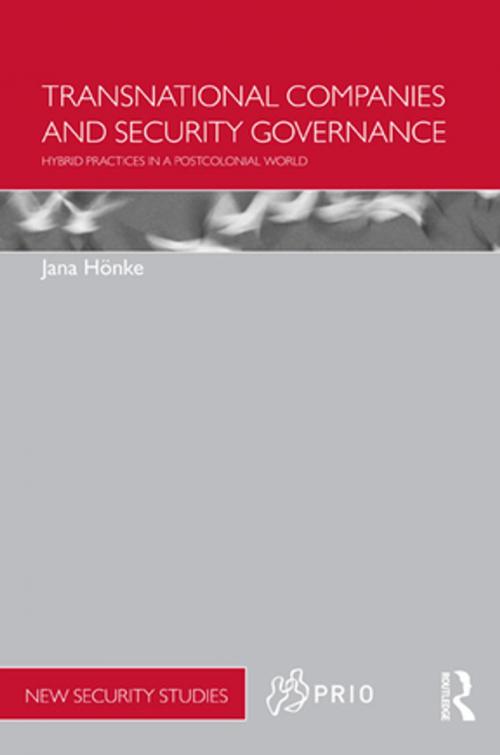Transnational Companies and Security Governance
Hybrid Practices in a Postcolonial World
Nonfiction, History, Africa, Social & Cultural Studies, Political Science, Business & Finance| Author: | Jana Hönke | ISBN: | 9781136219894 |
| Publisher: | Taylor and Francis | Publication: | August 21, 2013 |
| Imprint: | Routledge | Language: | English |
| Author: | Jana Hönke |
| ISBN: | 9781136219894 |
| Publisher: | Taylor and Francis |
| Publication: | August 21, 2013 |
| Imprint: | Routledge |
| Language: | English |
This book investigates governance practiced by non-state actors. It analyses how multinational mining companies protect their sites in fragile contexts and what that tells us about political ordering 'beyond' the state.
Based on extensive primary research in the Democratic Republic of Congo, South Africa, Europe and North America, the book compares companies' political role in the 19th and 21st centuries. It demonstrates that despite a number of disturbing parallels, many contemporary practices are not a reversion to the past but unique to the present. The book discloses hybrid security practices with highly ambiguous effects around the sites of contemporary companies that have committed to norms of corporate social and security responsibility. Companies invest in local communities, and offer human rights training to security forces alongside coercive techniques of fortress protection, and stability-oriented clientele practice and arrangements of indirect rule. The book traces this hybridity back to contradictory collective meaning systems that cross borders and structure the perceptions and choices of company managers, private security officers, NGO collaborators and others practitioners. The book argues that hybrid security practices are not the result of an encounter between a supposed ‘local’ with the liberal ‘global’. Instead, this hybridity is inherent in the transnational and part and parcel of liberal transnational governance. Therefore, more critical reflection of global governance in practice is required.
These issues are sharply pertinent to liberal peacebuilding as well as global governance more broadly. The book will be of interest to anyone interested in business, politics and human rights; critical security studies; peacebuilding and statebuilding; African politics; and ethnographic and sociological approaches to global governance and international relations more generally.
This book investigates governance practiced by non-state actors. It analyses how multinational mining companies protect their sites in fragile contexts and what that tells us about political ordering 'beyond' the state.
Based on extensive primary research in the Democratic Republic of Congo, South Africa, Europe and North America, the book compares companies' political role in the 19th and 21st centuries. It demonstrates that despite a number of disturbing parallels, many contemporary practices are not a reversion to the past but unique to the present. The book discloses hybrid security practices with highly ambiguous effects around the sites of contemporary companies that have committed to norms of corporate social and security responsibility. Companies invest in local communities, and offer human rights training to security forces alongside coercive techniques of fortress protection, and stability-oriented clientele practice and arrangements of indirect rule. The book traces this hybridity back to contradictory collective meaning systems that cross borders and structure the perceptions and choices of company managers, private security officers, NGO collaborators and others practitioners. The book argues that hybrid security practices are not the result of an encounter between a supposed ‘local’ with the liberal ‘global’. Instead, this hybridity is inherent in the transnational and part and parcel of liberal transnational governance. Therefore, more critical reflection of global governance in practice is required.
These issues are sharply pertinent to liberal peacebuilding as well as global governance more broadly. The book will be of interest to anyone interested in business, politics and human rights; critical security studies; peacebuilding and statebuilding; African politics; and ethnographic and sociological approaches to global governance and international relations more generally.















